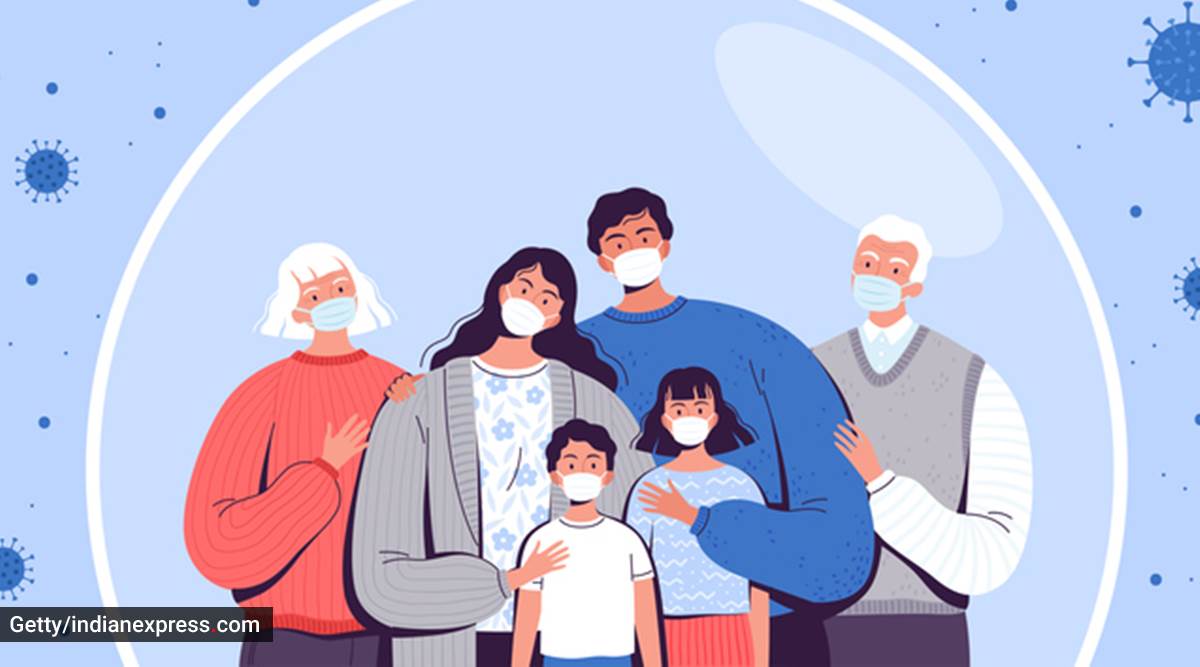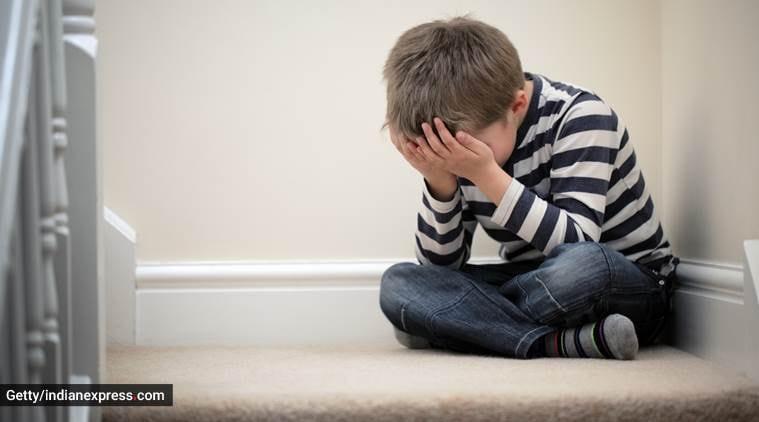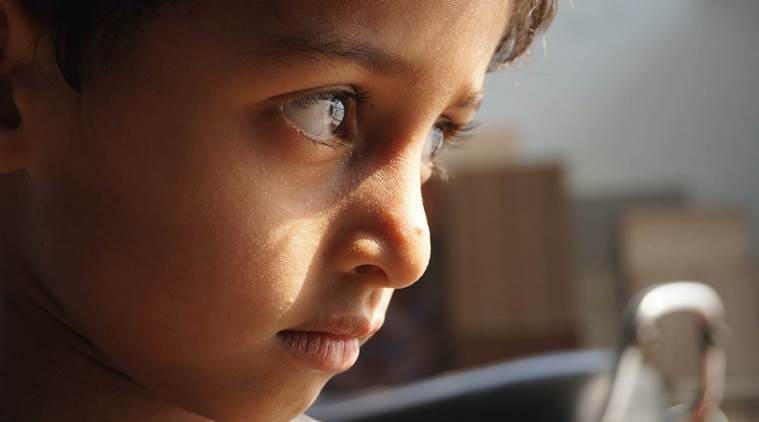https://alternative-medicine-ny.com/top/teenagers-and-abilify/
In the unfortunate circumstance that a child has been left orphaned in the pandemic, relatives can and must step in to comfort them. "Staying connected with the child is most important. Children need constant support for at least the first two years," advises an expert.

The loss of a loved one always brings insurmountable grief. But while an adult, with their wider emotional bandwidth, is able to process it better, living through it and finally accepting it, for a child, it is one of the most traumatic experiences, especially if it involves the death of a parent, or both parents.
In the pandemic, unfortunately, many children have had to experience this pain, with parents either too sick to be able to take care of them, or deceased, leaving the child in the care of a relative, or under institutional care. This begs two questions: one, what is the emotional impact of losing a parent, and two, if parents should have a discussion with their children, teaching them ways to cope with grief.
Mental health counsellor, wellness coach, and founder of Enso Wellness Arouba Kabir tells Express Parenting that the impact of losing a parent, or both of them is multifold. “All along, a child sees their parents as their role models, people who they learn from and bond with. Losing that bond is something no one is prepared for, no matter the age. These emotions — like grief, sadness, shock and disbelief — can persist in varying degrees from days, weeks to even months. Studies show losing a parent can lead to increased risks for long-term emotional and mental health issues, such as depression, anxiety, and substance abuse. This is especially true if a person doesn’t receive ample support during their bereavement,” she says.
Agreeing with her, parenting consultant and the founder of whatparentsask.com Dr Debmita Dutta says in addition to the “intense long-lasting grief”, there is also “loss of income that brings financial distress; it can cause terrible anxiety and a loss of identity”. “When children are not supported adequately through their grief, they may feel intense guilt, shame, and loneliness. And these can go on to adversely affect their mental health in the long term,” she tells this outlet.
So, is talking about grief and loss the ideal way to deal with it, and if so, how must parents broach such a sensitive topic?
Talk to children about the concept of death
Clinical psychologist, author, and founder of MindTribe.in Dr Prerna Kohli — who has also been an advisor to the National Commission for Protection of Child Rights (NCPCR), and is a member of the Niti Aayog Nutrition Committee — is of the opinion that children are capable of experiencing grief. “The response is different from adults. Parents need to teach the concept of death so the child can accept and normalise these difficult experiences. This should be done in an age-appropriate manner so the child finds comfort, she says, adding: “Children below the age of five will not understand statements like, ‘Grandpa is no more’. Parents need to be more direct. They need to say that grandpa’s body stopped working or he is dead. But with teens, you need to be sensitive as they are at a sensitive stage of development. Avoid euphemism, check in on them, answer their questions. If they cry, do not invalidate them. Be there for them. In addition, if needed, seek help from a professional.”
Kanchan Rai, mental and emotional well-being coach, and founder of Let Us Talk offers that instead of “directly jumping on to the topic, parents must learn to gently bring it up”. “Doing this will facilitate that child to gradually understand the ramifications of death and will help lessen its emotional implications”.

How to secure children for the future
Like Dr Kohli says, it is always advisable to be direct wherever possible. Additionally, for those below the age of 18, “parents can create a will as a contingency plan”. “This plan should include the name of a guardian and other necessary information. They can inform the older child about this plan, as well as the nominated guardian. This can be the godparent or a relative; it can ease your anxiety.”
Concurring with her Arouba says: “[Parents] telling [their children] what to expect in an unfortunate incident helps the child build trust in the guardians, which later helps when they need a loved one… Losing someone is a fearful process, but don’t let it reflect in your ways while conversing. Talk to them in a positive annotation, with a better choice of words. Listen to all their questions calmly, and be patient. If you feel like your child is not ready for the conversation, don’t push too hard. Retreat and try again later.”
Extended family can help kids dealing with parental loss
In the unfortunate circumstance that a child has been left orphaned in the pandemic, relatives can and must step in to comfort them. According to Rai, “Although the immediate family cannot protect the child from the pain, they can definitely facilitate them to feel safe. By letting and reassuring the child to express their feelings, you can help them rebuild healthy coping mechanisms.”
“Avoid condoling with such children, since doing so will only reconstruct the entire scenario of grief. Effective steps like encouraging to grieve and express feelings, maintaining a normal routine can help them achieve continuity. As can creating an environment that will enable them to put their emotions into words, along with the reassurance that they are not alone,” she says.
Adding to this, Dr Dutta explains it is important to understand a child can never get over the grief of losing a parent. They have to just grow through it. “Staying connected with the child is most important. Children need constant support for at least the first two years.”

Orphaned children and the role of NGOs/Childline services
In the pandemic, amid all the paranoia, insincere messages about orphaned children and their adoption are being circulated on social media. The government has advised the general public against encouraging and engaging such action.
“NGOs and Childline services step in when there is an emergency and no one knows what to do to ensure the child’s safety and well-being. If that has been taken care of by the parents, this may not be required. Of course, legal formalities will need to be completed and the police and courts will need to be informed and involved for that. There are NGOs that help in this,” says Dr Dutta.
According to the Ministry of Women and Child Development, children without parents or caregivers are defined as “children in need of care and protection”. If a child is found to have lost both parents to COVID-19, with no one to look after them, they ought to be produced before the District Child Welfare Committee (CWC) within 24 hours.
Additionally, it states that information about a child who has lost their parents, can be shared with the Childline helpline 1098, and the local Childline will then help in producing the child before the CWC. It will also help in assisting CWC with the well-being of the child, whenever required.
Also, if the child is restored to any kind of kinship care, CWC will continue to check their well-being on a regular basis. People wishing to adopt orphan children must approach Central Adoption Resource Authority (CARA) only for lawful adoptions.
Source: Read Full Article
